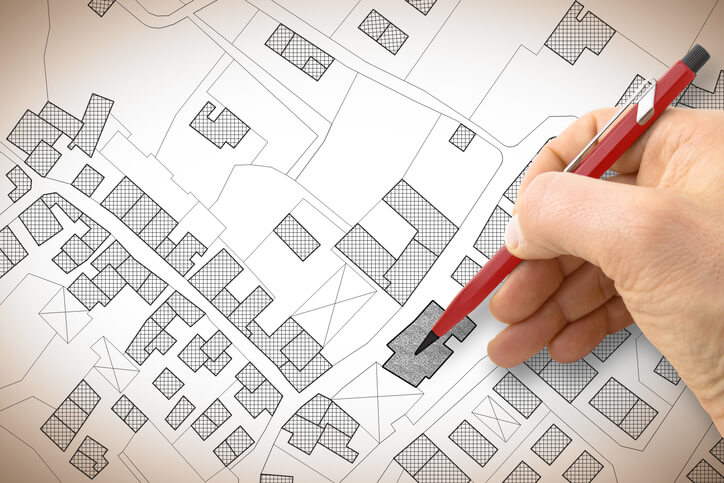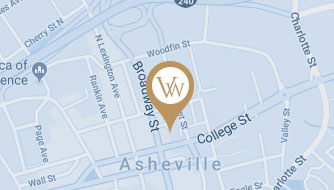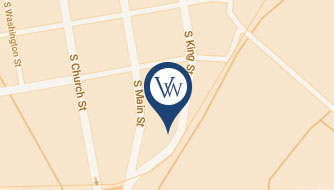North Carolina Property Owners Association Attorneys
Attorneys with The Van Winkle Law Firm provide comprehensive counsel to associations for homeowners, property owners, townhouse owners, and condominium owners for a wide range of matters, which include day-to-day operational decisions, governing documents and amendments, annual meetings, rules enforcement, liens and foreclosures, and construction defect claims.
What Is A Property Owner Association?
A property owner association is a community regulatory organization comprised of two or more property owners for the purpose of maintaining commonly owned property as well as enforcement of regulations of privately owned property within the specified area. In the State of North Carolina, developing communities are typically required to form a nonprofit organization to maintain shared spaces within the community. The type of property dictates the type of association by which the property is overseen — such as associations for homeowners, property owners, townhouse owners, or condominium owners.
Property owner associations are generally responsible for management of the community’s finances, including the collection of property owner fees and special assessments, maintaining common areas such as roads, creating and enforcing the community guidelines and governing documents, collecting unpaid property owners’ fees, and reviewing applications for new construction and remodels of existing homes. Attorneys for Property Owners Associations in North Carolina.

Due to the complex nature of North Carolina state laws pertaining to property owners associations, as well as the range of matters these organizations must manage, board members within these associations often seek counsel from attorneys who specialize in practice areas specific to property owners associations.
What Are Bylaws To Property Owners Associations?
Property owners association bylaws are the guidelines and requirements under which the association and its board operates. Bylaws include information about the required member meetings and meeting notices, terms to the directors of the association, and the duties of the various board of directors offices, as well as a number of other requirements regarding the management and operations of the association.
What Are Covenants, Conditions & Restrictions (CC&Rs)?
Covenants, conditions, and restrictions (CC&Rs) are the rules, requirements, and regulations that a property is subject to and a property owners association enforces. The CC&Rs may include anything from restrictions on paint colors to the exterior of a building, and even whether domestic pets may be allowed within the property. Lawyers with The Van Winkle Law Firm have extensive experience providing strategic counsel to help property owners associations throughout Asheville, North Carolina and the Western North Carolina region manage all aspects of creating, implementing, and enforcing CC&Rs.
General Counsel To Property Owners Associations Boards
Property owners association attorneys with our firm can help association boards adequately develop business operations pursuant to bylaws, CC&Rs, articles of incorporation, and other types of governing documents to meet the needs of their association and to fulfill the state regulated requirements of these associations. Each dispute involving a property owner association requires specialized analysis of the governing substantive and procedural law. The Van Winkle Law Firm represents a number of different types of property owners associations to provide guidance with the interpretation of their governing documents as well as counsel for amending these documents to better meet the evolving needs of the communities they grow. Our attorneys can also provide counsel to newly elected owners association board members regarding their responsibilities as required within the board of directors’ offices.
Delinquent Property Owners Associations Collections
Individuals who own property within a covenanted community are periodically required to pay fees to the property owner association, either on a monthly basis or a fixed annual schedule. Property owners must also remit special assessments for one-time expenses that are not covered by funds already acquired by the association, such as for building a new shared community building or repaving the communal parking lot. Our team of HOA attorneys can assist with the collection of payments owed to a property owners association by delinquent property owners. With extensive experience in the collection of homeowners’ assessments, our lawyers provide efficient and cost-effective solutions to reduce the liabilities associated with delinquent payments to property owners associations.

What Is Required To Collect Delinquent Assessment & Enact A Property Lien?
In many cases, delinquent payments and unpaid assessments constitute a lien on the property, as outlined by the specific procedures of the association’s CC&Rs. To impose a lien on a delinquent property, protect the lien, and notify the property owner of the association’s right to collect upon the lien, board members must follow a number of complex legal procedures that comply with the CC&Rs and state law. In certain cases, the property owner association may record a lien with a county official to make public the existence of the lien.
Should a delinquent assessment result in a lien on the property in question, our firm can manage the required legal proceedings and file all accompanying paperwork to help ensure the best result for your case. Once our HOA attorneys receive a request for collection, they will provide the delinquent property owner with a letter of demand. If the delinquent assessment is not paid, we may file a claim of lien against the property, and if non-payment continues, we may commence a foreclosure proceeding depending on the client’s wishes.
Construction Defect Claims
Construction defect matters often arise due to disputes between construction companies, developers or contractors and association board members. Whether the dispute was created by the contractor for the association or from the association against the contractor, these matters may quickly escalate to litigation. If the issue constitutes a building defect — such as a defective or unsound structure installed by a construction company — the association may file a request for damages reimbursement. Experienced counsel and comprehensive representation are among the essential factors required to protect the interests of property owners associations — our attorneys are committed to providing successful guidance to each client from the initial stages of a construction defect dispute through the final disposition.







